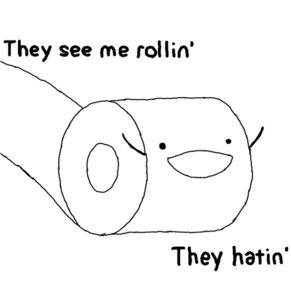12273706
Control of Body Temperature
Description
No tags specified
Resource summary
| Question | Answer |
| Compare the control of body temperature in ectotherms and endotherms | ECTOTHERMS Can't control body temperature internally - control by altering behaviour ENDOTHERMS Control their body temperature internally by homeostasis as well as altering behaviour |
| Compare the internal temperature of ectotherms and endotherms | ECTOTHERMS Internal temperature depends on external temperature ENDOTHERMS Internal temperature is less affected by the external temperature (within limits) |
| Compare the metabolic rate of ectotherms and endotherms | ECTOTHERMS Variable metabolic rate (they can't keep internal temperature constant) ENDOTHERMS Constantly high metabolic rate (they can keep internal temperature constant) |
| Compare the generation of heat in ectotherms and endotherms | ECTOTHERMS Generate very little heat themselves ENDOTHERMS Generate a lot of heat from metabolic reactions |
| Compare the activity level of ectotherms and endotherms | ECTOTHERMS Activity level depends on external temperature ENDOTHERMS Activity level is largely INDEPENDENT of external temperature |
| Give two examples of ectotherms | Reptiles Fish |
| Give two examples of endotherms | Mammals Birds |
| Compare the secretion of sweat when the body is too hot and when it is too cold | TOO HOT More sweat secreted from sweat glands - water evaporates, taking heat from body TOO COLD Less sweat secreted from sweat glands - reduces amount of heat loss |
| Compare the action of erector pili muscles when the body is too hot and when it is too cold | TOO HOT Erector pili muscles relax and hairs lie flat so less air is trapped (heat can be lost more easily) TOO COLD erector pili muscles contract and hairs stand up so more air is trapped (heat loss is prevented) |
| Compare the action of blood vessels when the body is too hot and when it is too cold | TOO HOT Vasodilation - arterioles near surface of skin dilate, more blood flows through capillaries in the surface layers of the dermis, more heat is lost by radiation TOO COLD Vasoconstriction - arterioles near surface of skin constrict, less blood flows through capillaries in the surface layers of the dermis, reduce heat loss |
| How do muscles react to the body temperature being too cold? | Shivering - muscles contract in spasms, more heat is produced from increased respiration |
| How do hormones help to increase body temperature when it is too cold? | Body releases adrenaline and thyroxine - increases metabolism and so more heat is produced |
| Complete the sentences: Body temperature in mammals is maintained at a constant level by a part of the brain called the _______________. The ________________ receives information about both internal and external temperature from ________________. | Body temperature in mammals is maintained at a constant level by a part of the brain called the HYPOTHALAMUS. The HYPOTHALAMUS receives information about both internal and external temperature from THERMORECEPTORS. |
| What do thermoreceptors in the hypothalamus detect? | Internal temperature |
| What do thermoreceptors in the skin detect? | Peripheral temperature receptors detect external temperature |
| Complete the sentence: Thermoreceptors send _________ along sensory neurones to the _______________ , which send impulses along ________ neurones to __________. | Thermoreceptors send IMPULSES along sensory neurones to the HYPOTHALAMUS, which send impulses along MOTOR neurones to EFFECTORS. |
| Outline the negative feedback loop for when the body temperature is too high |
Image:
Image (binary/octet-stream)
|
| Outline the negative feedback loop for when the body temperature is too low |
Image:
Image (binary/octet-stream)
|
Want to create your own Flashcards for free with GoConqr? Learn more.

